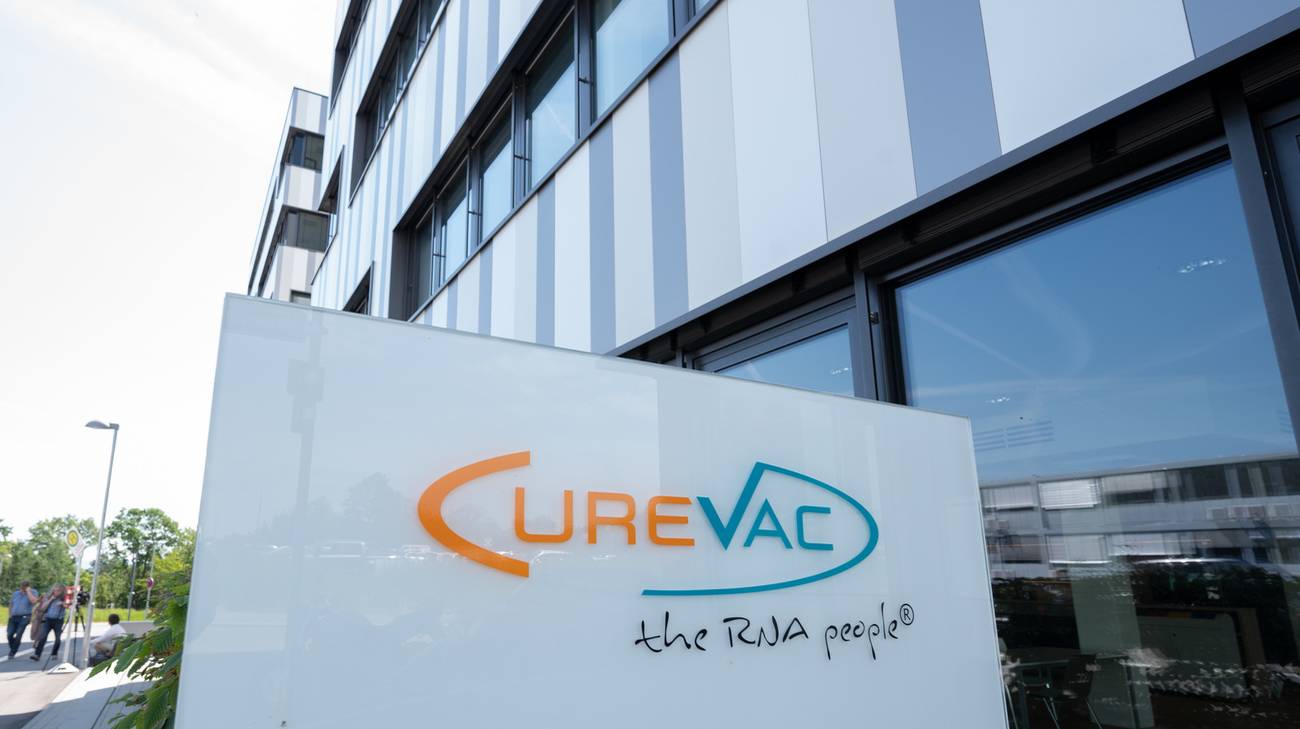CureVac's Covid mRNA vaccine fails test, effective only at 47%. The Financial Times article
dthe Start Magazine editorial board – 18 giugno 2021
CureVac Wednesday he said that its vaccine was 47 percent effective at protecting against the coronavirus in an interim analysis of its late-stage trials, making it one of the least effective coronavirus vaccines tested. ft.
US drugmaker Novavax this week said its protein-based vaccine is 90 percent effective at fighting the coronavirus, while Moderna and BioNTech/Pfizer vaccines are 95 percent effective at tackling the original strain of the virus. .
Shares of Nasdaq-listed CureVac tumbled 50 percent in the New York aftermarket on Wednesday.
The company attributed the unsatisfactory results to strains of the virus circulating in 10 countries in Latin America and Europe, where trials were conducted.
In its 40,000-person study, CureVac said 13 variants were found in volunteers, with more than half of coronavirus cases caused by concern variants.
However, data from the UK this week showed that BioNTech/Pfizer's two-dose mRNA, or messenger ribonucleic acid, vaccine was effective at 96% in preventing hospitalization of people infected with the Delta variant, which has been detected for the first time in India.
CureVac has partnered with German conglomerate Bayer to produce its coronavirus vaccine and has a deal with British pharmaceutical company GlaxoSmithKline to create a next generation of vaccines.
The weak test results have questioned the feasibility of these designs. CureVac aims to produce 300 million doses of its vaccine this year and 1 billion in 2022.
The company's shares have soared since its initial public offering in August 2020 as investors rushed to back the vaccine maker. CureVac had a cash position of €1.3 billion at the end of last year.
“While we hoped for a stronger interim result, we recognize that demonstrating high efficacy in this unprecedentedly broad diversity of variants is challenging,” said Franz-Werner Haas, chief executive officer of CureVac. He added that the plethora of variants "highlights the importance of developing next-generation vaccines."
The vaccine is also being studied in the UK as part of a booster study that involves giving several shots to people who have already received two doses of the Oxford/AstraZeneca or BioNTech/Pfizer vaccines.
As with the Moderna and BioNTech/Pfizer vaccines, CureVac's vaccine uses mRNA but its mRNA is natural and unmodified. Its vaccine also uses a lower dose, 12 micrograms compared to Moderna's 100mcg and BioNTech/Pfizer's 30mcg, which results in a lower cost of production, and is stable at conventional refrigerator temperatures.
CureVac said it will continue trials of its two-dose mRNA vaccine and decide on the most appropriate regulatory pathway after evaluating the final trial data.
(Excerpt from the foreign press review by Epr Comunicazione)
Related news: CureVac Provides Update on Phase 2b/3 Trial of First-Generation COVID-19 Vaccine Candidate, CVnCoV
CureVac vaccine fails first tests, Italy expected 30.2 million doses
Landazabal (GlaxoSmithKline) a Sky TG24: “Concentrati su sviluppo nuovi vaccini” (CureVac)
Novavax vaccine effective at 90% also against variants
EU Court agrees with AstraZeneca / "Give 80 million doses" Commission asked for 300
Note: The CureVax vaccine for first clinical development, CVnCoV, is an optimized, chemically unmodified mRNA vaccine encoding the prefusion-stabilized Spike protein of SARS-CoV-2 virus and formulated in lipid nanoparticles (LNP)
CureVac N.V. è un’azienda di biofarmaceutica, domiciliata nei Paesi Bassi ma con sede a Tubinga in Germania che sviluppa terapie basate su mRNA. La principale attività dell’azienda consiste nello sviluppare vaccini contro malattie infettive e farmaci che trattano il cancro e malattie rare. Fu fondata nel 2000 da Ingmar Hoerr (attuale amministratore delegato), Steve Pascolo (CSO), Florian von der Mulbe (COO), Günther Jung e Hans-Georg Rammensee, CureVac a maggio 2018 aveva 375 dipendenti
The Novavax vaccine uses a different technology from that of the other vaccines approved so far: it is a protein-based vaccine that contains nanoparticles obtained from a laboratory version of the Spike protein present on the surface of Sars-Cov-2 and which uses an adjuvant substance to strengthen the immune responses. While mRna vaccines introduce the instructions to produce the spike protein into the body, the protein-based vaccine introduces the protein itself carried by small particles.
